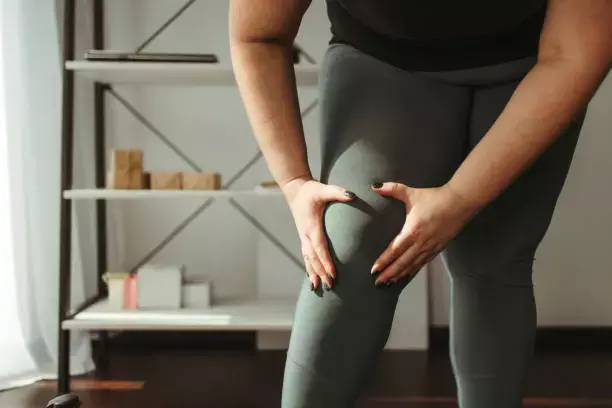- Home
- Medical news & Guidelines
- Anesthesiology
- Cardiology and CTVS
- Critical Care
- Dentistry
- Dermatology
- Diabetes and Endocrinology
- ENT
- Gastroenterology
- Medicine
- Nephrology
- Neurology
- Obstretics-Gynaecology
- Oncology
- Ophthalmology
- Orthopaedics
- Pediatrics-Neonatology
- Psychiatry
- Pulmonology
- Radiology
- Surgery
- Urology
- Laboratory Medicine
- Diet
- Nursing
- Paramedical
- Physiotherapy
- Health news
- Fact Check
- Bone Health Fact Check
- Brain Health Fact Check
- Cancer Related Fact Check
- Child Care Fact Check
- Dental and oral health fact check
- Diabetes and metabolic health fact check
- Diet and Nutrition Fact Check
- Eye and ENT Care Fact Check
- Fitness fact check
- Gut health fact check
- Heart health fact check
- Kidney health fact check
- Medical education fact check
- Men's health fact check
- Respiratory fact check
- Skin and hair care fact check
- Vaccine and Immunization fact check
- Women's health fact check
- AYUSH
- State News
- Andaman and Nicobar Islands
- Andhra Pradesh
- Arunachal Pradesh
- Assam
- Bihar
- Chandigarh
- Chattisgarh
- Dadra and Nagar Haveli
- Daman and Diu
- Delhi
- Goa
- Gujarat
- Haryana
- Himachal Pradesh
- Jammu & Kashmir
- Jharkhand
- Karnataka
- Kerala
- Ladakh
- Lakshadweep
- Madhya Pradesh
- Maharashtra
- Manipur
- Meghalaya
- Mizoram
- Nagaland
- Odisha
- Puducherry
- Punjab
- Rajasthan
- Sikkim
- Tamil Nadu
- Telangana
- Tripura
- Uttar Pradesh
- Uttrakhand
- West Bengal
- Medical Education
- Industry
Metabolic Syndrome not Linked with Knee osteoarthritis: Study

Osteoarthritis (OA), the most prevalent form of arthritis, causes pain and disability of the joints. Growing evidence suggests OA as another novel component of metabolic syndrome (MetS). However, in a recent study, researchers found no association between metabolic syndrome or body fat distribution and knee OA. The study findings were published in the International Journal of Rheumatic Disease on December 07, 2021.
Several studies have evaluated the association between MetS or its components and knee OA. However, their results were conflicting. It is still uncertain whether metabolic syndrome or body fat distribution is associated with knee OA. Therefore, Dr Hyun Ah Kim and his team conducted a study to elucidate the association between metabolic obesity and adverse structural changes of knee OA assessed by magnetic resonance imaging (MRI).
The researchers included a total of 226 participants from the Hallym Aging Study cohort in Korea. They assessed the knee MRI scans, along with dual-energy X-ray absorptiometry at baseline and after 3 years. They used a semi-quantitative Whole-Organ MRI Score (WORMS) to evaluate the structural progression in the tibiofemoral joint for cartilage morphology and bone marrow lesions (BML). They performed logistic regression with a generalized estimating equation to assess the associations of metabolic risk factors with worsening of WORMS scores at the subregional level.
Key findings of the study:
- In the medial compartment, the researchers found that the fat mass in women was associated with cartilage loss.
- However, they noted that the statistical significance disappeared after adjusting for body mass index.
- They found that the metabolic syndrome and each of its components was not associated with cartilage loss or increase of BML.
- They also found that the interaction effects of metabolic syndrome on the association between obesity and knee OA progression were not significant.
The authors concluded, "In this cohort, metabolic effects of obesity on knee cartilage damage and BML were not demonstrated. Further large-scale studies are required to prove the causal relationship between metabolic obesity and knee OA."
For further information:
DOI: https://doi.org/10.1111/1756-185X.14255
Medical Dialogues Bureau consists of a team of passionate medical/scientific writers, led by doctors and healthcare researchers. Our team efforts to bring you updated and timely news about the important happenings of the medical and healthcare sector. Our editorial team can be reached at editorial@medicaldialogues.in.
Dr Kamal Kant Kohli-MBBS, DTCD- a chest specialist with more than 30 years of practice and a flair for writing clinical articles, Dr Kamal Kant Kohli joined Medical Dialogues as a Chief Editor of Medical News. Besides writing articles, as an editor, he proofreads and verifies all the medical content published on Medical Dialogues including those coming from journals, studies,medical conferences,guidelines etc. Email: drkohli@medicaldialogues.in. Contact no. 011-43720751


